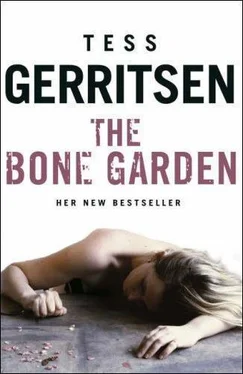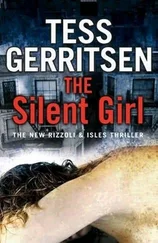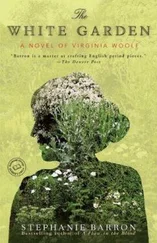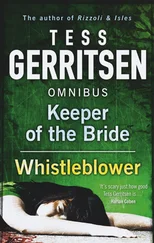Tess Gerritsen - The Bone Garden - A Novel
Здесь есть возможность читать онлайн «Tess Gerritsen - The Bone Garden - A Novel» весь текст электронной книги совершенно бесплатно (целиком полную версию без сокращений). В некоторых случаях можно слушать аудио, скачать через торрент в формате fb2 и присутствует краткое содержание. Город: New York, Год выпуска: 2007, ISBN: 2007, Издательство: Ballantine Books, Жанр: Детектив, на английском языке. Описание произведения, (предисловие) а так же отзывы посетителей доступны на портале библиотеки ЛибКат.
- Название:The Bone Garden: A Novel
- Автор:
- Издательство:Ballantine Books
- Жанр:
- Год:2007
- Город:New York
- ISBN:9780345497604
- Рейтинг книги:3 / 5. Голосов: 1
-
Избранное:Добавить в избранное
- Отзывы:
-
Ваша оценка:
- 60
- 1
- 2
- 3
- 4
- 5
The Bone Garden: A Novel: краткое содержание, описание и аннотация
Предлагаем к чтению аннотацию, описание, краткое содержание или предисловие (зависит от того, что написал сам автор книги «The Bone Garden: A Novel»). Если вы не нашли необходимую информацию о книге — напишите в комментариях, мы постараемся отыскать её.
The Bone Garden: A Novel — читать онлайн бесплатно полную книгу (весь текст) целиком
Ниже представлен текст книги, разбитый по страницам. Система сохранения места последней прочитанной страницы, позволяет с удобством читать онлайн бесплатно книгу «The Bone Garden: A Novel», без необходимости каждый раз заново искать на чём Вы остановились. Поставьте закладку, и сможете в любой момент перейти на страницу, на которой закончили чтение.
Интервал:
Закладка:
I realize that this is perhaps my last chance to broach a difficult subject which I should have raised long ago. I have been reluctant to speak of this, as I know that your aunt felt it wisest to keep this from you —
Julia looked up. — This was written in 1888. That's well after the bones were buried. —
— Keep reading, — he said. And she did, until the final paragraph.
For now, I enclose the news clipping, which I earlier mentioned. If you have no desire to learn more, please tell me, and I will never again mention this. But if indeed the subject of your parents holds any interest for you, then at my next opportunity, I will once again pick up my pen. And you will learn the story, the true story, of your aunt and the West End Reaper.
With fondest regards,
O.W.H.
— Do you realize who O.W.H. is? — asked Henry. His eyes, magnified by the lenses of his spectacles, gleamed with excitement.
— You told me over the phone it was Oliver Wendell Holmes. —
— And you do know who he was? —
— He was a judge, wasn't he? A Supreme Court justice. —
Henry gave a sigh of exasperation. — No, that's Oliver Wendell Holmes Junior, the son! This letter is from Wendell Senior . You must have heard of him . —
Julia frowned. — He was a writer, wasn't he? —
— That's all you know about him? —
— I'm sorry. I'm not exactly a history teacher. —
— You're a teacher? Of what? —
— The third grade. —
— Even a third-grade teacher should know that Oliver Wendell Holmes Senior was more than just a literary figure. Yes, he was a poet and a novelist and a biographer. He was also a lecturer, a philosopher, and one of the most influential voices in Boston. And he was one more thing. In the scheme of his contributions to mankind, it was the most important thing of all. —
— What was that? —
— He was a physician. One of the finest of his age. —
She looked at the letter with more interest. — So this is historically significant. —
— And the Margaret whom he addresses in the letter that's my great-great-grandmother, Dr. Margaret Tate Page, born in 1830. She was one of the first women physicians in Boston. That's her house you now own. In 1880, when her house was built, she would have been fifty years old. —
— Who is this aunt he speaks of in the letter? —
— I have no idea. I know nothing at all about her. —
— Are there other letters from Holmes? —
— I'm hoping we'll find them here. — He glanced at the dozen boxes stacked beside the dining table. — I've only searched these six so far. Nothing's organized, nothing's in order. But here is the history of your house, Ms. Hamill. This is what's left of the people who lived there. —
— He said that he enclosed a clipping. Did you find it? —
Henry reached for a scrap of newspaper. — I believe this is what he referred to. —
The clipping was so brown with age that she had trouble reading the tiny print in the gray light of the window. Only when Henry turned on a lamp was she able to make out the words.
It was dated November 28, 1830.
WEST END MURDER DESCRIBED AS — SHOCKING AND GROTESQUE —
At 10 PM Wednesday, officers of the Night Watch were called to Massachusetts General Hospital after the body of Miss Agnes Poole, a nurse, was discovered dead in a large puddle of blood on the back steps of the hospital. Her injuries, according to Officer Pratt of the Watch, left no doubt that this was an attack of the most brutal nature, most likely inflicted with a large cutting instrument such as a butcher knife. The lone witness remains unidentified to this reporter, out of concern for her safety, but Mr. Pratt confirms that it is a young woman, who described the assailant as — cloaked in black like the Grim Reaper, with the wings of a bird of prey. —
— This murder took place in Boston, — said Julia.
— A mere half-day carriage ride from your house in Weston. And the murder victim was a woman. —
— I see no connection to my house. —
— Oliver Wendell Holmes may be the connection. He writes to Margaret, who's living in your house. He makes this puzzling reference to her aunt, and to a killer known as the West End Reaper. Somehow, Holmes became involved in this murder case a case he felt compelled to tell Margaret about over fifty years later. Why? What was this mysterious secret she was never supposed to know? —
The distant bellow of a ship's horn made Julia look up. — I wish I didn't have to catch the ferry. I'd really love to learn the answer. —
— Then don't leave. Why not spend the night? I saw your overnight bag by the front door. —
— I didn't want to leave it in my car, so I brought it over with me. I was planning to check into a motel in Lincolnville. —
— But you can see all the work we have to do here! I have a perfectly nice guest room upstairs, with quite a spectacular view. —
She glanced at the window, at fog that had grown even thicker, and wondered what view he was talking about.
— But perhaps it's not really worth your trouble. It seems I'm the only one who cares about history anymore. I just thought you might feel the same way, since you touched her bones. — He sighed. — Oh, well. What does it matter? Someday, we'll all be just like her. Dead and forgotten. — He turned. — The last ferry leaves at four thirty. You'd better head back to the landing now, if you want to catch it. —
She didn't move. She was still thinking about what he'd said. About forgotten women.
— Mr. Page? — she said.
He looked back, a bent little gnome of a man clutching his knobby cane.
— I think I will spend the night. —
For a man his age, Henry could certainly hold his drink. By the time they'd finished dinner, they were well into a second bottle of wine, and Julia was having trouble focusing. Night had fallen, and in the glow of lamplight everything in the room had blurred to a warm haze. They had eaten their meal at the same table where the papers were spread out, and alongside the remains of roast chicken was a stack of old letters and newspapers she had yet to examine. She could not possibly read them tonight, not the way her head was spinning.
Henry didn't appear to be slowing down at all. He refilled his glass and sipped as he reached for another document, one of an endless collection of handwritten correspondence addressed to Margaret Tate Page. There were letters from beloved children and grandchildren and medical colleagues from around the world. How could Henry still focus on the faded ink after all those glasses of wine? Eighty-nine years old sounded ancient, yet Henry was out-drinking her, and certainly outlasting her through this evening's reading marathon.
He glanced at her over the rim of his glass. — You've given up already? —
— I'm exhausted. And a little tipsy, I think. —
— It's only ten o'clock. —
— I don't have your stamina. — She watched as he brought the letter right up to his spectacles, squinting to read the faded writing. She said, — Tell me about your cousin Hilda. —
— She was a schoolteacher, like you. — He flipped over the letter. Added, absently: — Never got around to having any children of her own. —
— Neither did I. —
— Don't you like children? —
— I love them. —
— Hilda didn't. —
Julia sank back in the chair, looking at the stack of boxes, the only legacy that Hilda Chamblett had left behind. — So that's why she was living alone. She didn't have anyone. —
Henry glanced up. — Why do you think I live alone? Because I want to, that's why! I want to stay in my own house, not some nursing home. — He reached for his glass. — Hilda was like that, too. —
Читать дальшеИнтервал:
Закладка:
Похожие книги на «The Bone Garden: A Novel»
Представляем Вашему вниманию похожие книги на «The Bone Garden: A Novel» списком для выбора. Мы отобрали схожую по названию и смыслу литературу в надежде предоставить читателям больше вариантов отыскать новые, интересные, ещё непрочитанные произведения.
Обсуждение, отзывы о книге «The Bone Garden: A Novel» и просто собственные мнения читателей. Оставьте ваши комментарии, напишите, что Вы думаете о произведении, его смысле или главных героях. Укажите что конкретно понравилось, а что нет, и почему Вы так считаете.












